Empowering Developers with Agentic AI: Democratizing Data Science for Smarter Applications
Published by: Vinu VijayanFeb 18, 2025Blog
In today's hyper-competitive digital economy, data-driven decision-making has become the backbone of innovation. Organizations that effectively leverage data are 23 times more likely to acquire customers and 19 times more likely to be profitable than those that don't.
Despite this, many organizations struggle to integrate AI-driven insights into their applications. One of the biggest barriers? A shortage of data science talent. Studies show that the demand for data scientists and AI specialists far outpaces the supply, making it difficult for companies--especially smaller ones--to leverage AI effectively.
This talent gap creates a growing divide where only large enterprises with extensive resources can build AI-powered solutions, leaving smaller businesses at a disadvantage. Agentic AI is changing this narrative by democratizing access to data science, enabling developers to integrate AI-powered analytics, automation, and decision-making into custom applications without requiring advanced expertise in data science.
What is Data Democratization and Why Does It Matter?
Understanding Data Democratization
Data democratization is the process of making data and analytics accessible to everyone, regardless of technical expertise. Instead of centralized data teams acting as gatekeepers, democratization empowers all employees and developers to access, analyze, and utilize data for decision-making.
This concept is crucial in modern business operations as it eliminates bottlenecks in data accessibility, allowing teams to innovate and make real-time decisions faster.
Breaking Down Data Silos
Many organizations struggle with data silos, where information is trapped within different departments--marketing, sales, finance, and IT--without seamless integration. This fragmentation leads to inefficiencies, poor collaboration, and delays in decision-making.
By democratizing data, businesses can:
- Enable cross-functional teams to access shared data insights.
- Improve transparency across departments for better strategic alignment.
- Accelerate decision-making by reducing reliance on centralized data teams.
The Key Benefits of Data Democratization
✔ Better Decision-Making - Organizations that effectively leverage data see higher efficiency and productivity.
✔ Increased Innovation - When data is accessible to all, teams can experiment, identify trends, and drive new solutions.
✔ More Equitable AI - Data democratization ensures a diverse set of employees can contribute insights, reducing biases in AI-driven decision-making.
The Role of AI in Data Democratization
Traditional analytics tools require manual data wrangling, query writing, and model building--tasks that are time-consuming and require technical expertise. AI-powered systems simplify this process by automating data aggregation, analysis, and reporting, making it easier for non-technical users to generate insights.
Agentic AI takes this further by bridging the gap between complex datasets and actionable intelligence--a crucial step in the evolution of smart applications.
The Data Science Talent Gap: A Barrier to Innovation
The Growing Data Explosion
By 2025, the total volume of digital data is expected to reach 175 zettabytes--a 430% increase from 2018. Despite this explosion in data, the number of qualified data scientists remains woefully inadequate to manage and extract insights from this information.
The Cost of Hiring Data Science Talent
With demand far exceeding supply, AI and data science professionals command high salaries. In the U.S., the average salary for a senior data scientist exceeds $150,000 per year. For small to mid-sized businesses, this cost makes in-house AI expertise unattainable.
How This Creates an AI Divide
✔ Large enterprises invest heavily in AI research and in-house data teams, gaining a competitive advantage.
✔ Small and medium-sized businesses lack resources to build AI-driven solutions, creating a technological gap.
Why Traditional Data Analysis Falls Short
Traditional data analysis relies on centralized teams using legacy analytics tools that:
- Require manual intervention to clean, process, and interpret data.
- Lack the scalability needed to manage ever-growing datasets.
- Are difficult to integrate with modern application development pipelines.
This highlights the urgent need for AI-driven automation--a gap that Agentic AI is uniquely positioned to fill.
Introducing Agentic AI: Your AI Data Scientist
What is Agentic AI?
Agentic AI refers to AI-powered autonomous agents that:
- Automate data processing without manual intervention.
- Extract meaningful insights from structured and unstructured data.
- Make predictive decisions based on real-time and historical data.
How Agentic AI Works in Data Science
- Automated Data Processing - Connects to multiple data sources, cleans raw data, and prepares it for analytics.
- Pattern Discovery - Uses advanced machine learning to identify correlations and hidden trends.
- Causal Modeling - Builds cause-and-effect relationships to predict future business outcomes.
- Natural Language Explanation - Translates complex insights into human-friendly reports, making analytics accessible to everyone.
Why This Matters for Custom Software Development
With Agentic AI, developers can:
- Embed AI-powered analytics into applications without needing deep data science expertise.
- Automate AI-driven workflows, from data ingestion to predictive modeling.
- Enable real-time AI recommendations, making software applications smarter and more responsive.
How Agentic AI Empowers Developers
1. Democratizing Access to AI
Traditional AI solutions require expert knowledge in:
- Data preprocessing
- Algorithm selection and tuning
- Model training and deployment
Agentic AI eliminates these barriers, allowing any developer to integrate AI-driven insights into applications without requiring a PhD in data science.
2. Simplifying Data Analysis & Reporting
- Natural Language Processing (NLP) enables developers to query datasets and receive insights in plain English--no SQL required.
- AI-powered dashboards automatically generate visualizations and key performance indicators (KPIs) for business stakeholders.
3. Automating Data-to-Decision Pipelines
Agentic AI handles the entire AI workflow:
Extract → Process → Analyze → Recommend Actions
This allows developers to focus on building applications rather than managing AI infrastructure.
Key Benefits of Agentic AI in Custom Software Development
Accelerated Development - Speeds up time-to-market by automating AI model training and deployment.
- Improved Decision-Making - Delivers AI-powered insights directly within applications.
- Cost Efficiency - Eliminates the need for expensive AI specialists.
- Competitive Edge - Enables smaller organizations to compete with AI-driven enterprises.
Conclusion: The Future of AI-Driven Custom Applications
Agentic AI is revolutionizing how developers integrate AI into applications. By eliminating technical barriers, it democratizes AI-powered decision-making, allowing developers to build truly intelligent applications--without needing extensive data science expertise.
Ready to integrate Agentic AI into your software development workflow?
Explore Evalogical's AI-driven development services.


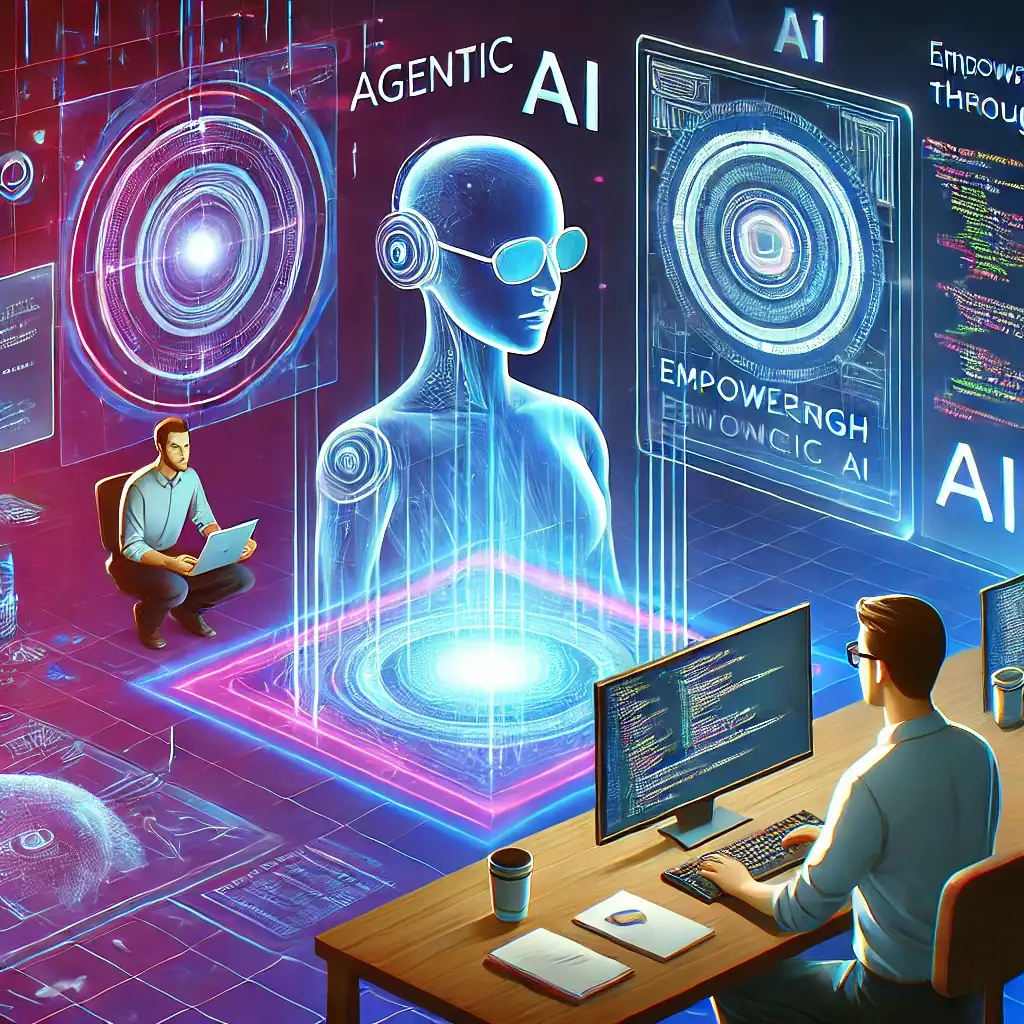
 The Psychology Behind Great UX....
The Psychology Behind Great UX....
 UX Is Not Just Design: How Use....
UX Is Not Just Design: How Use....
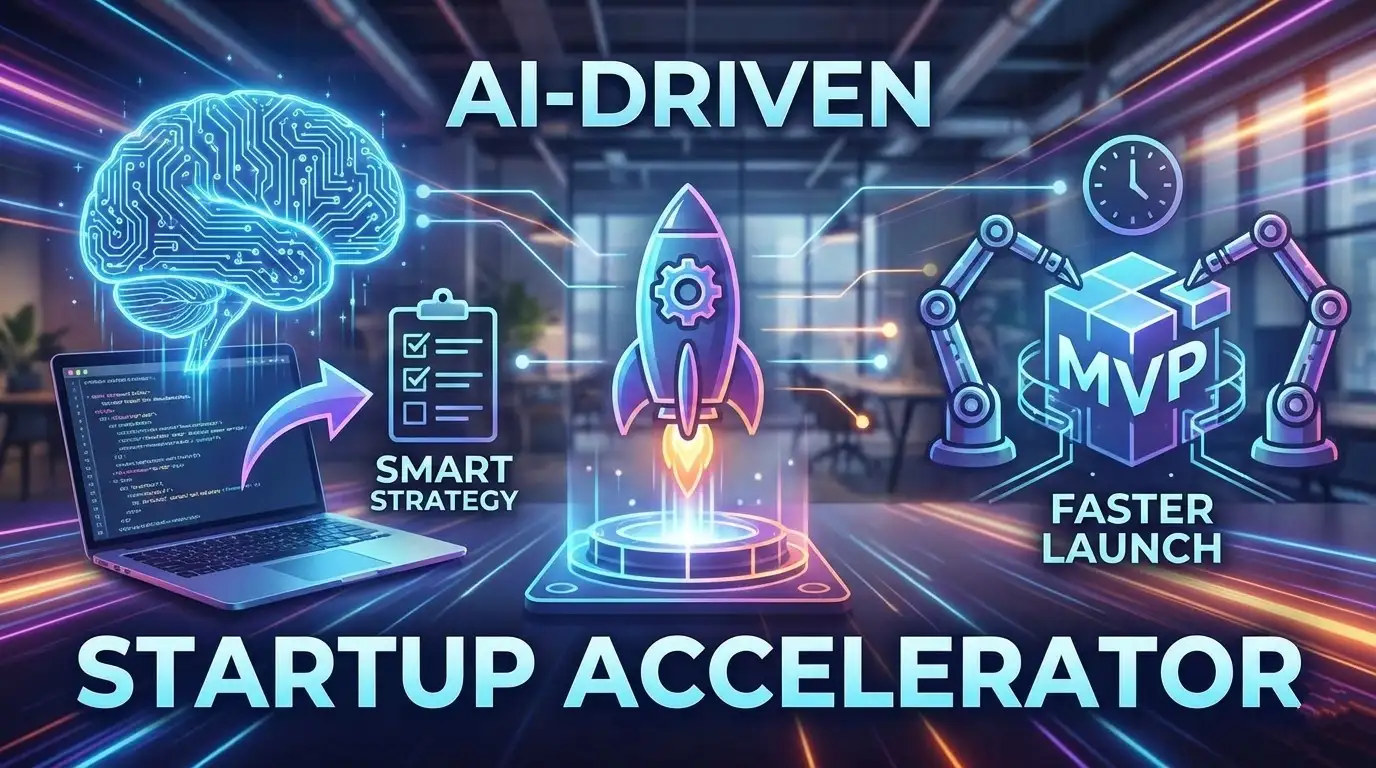 AI-Powered MVP Development: Sm....
AI-Powered MVP Development: Sm....
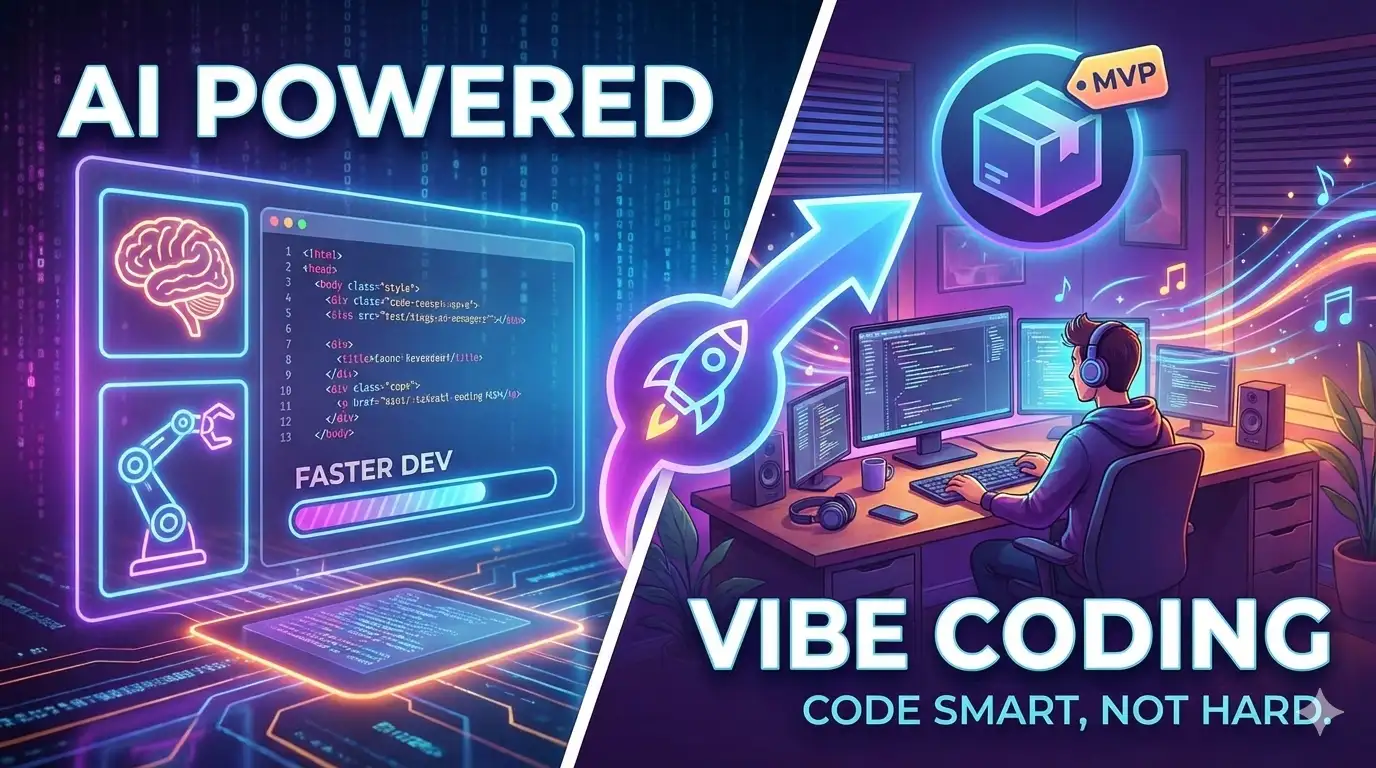 Build Your MVP Faster: AI Tool....
Build Your MVP Faster: AI Tool....
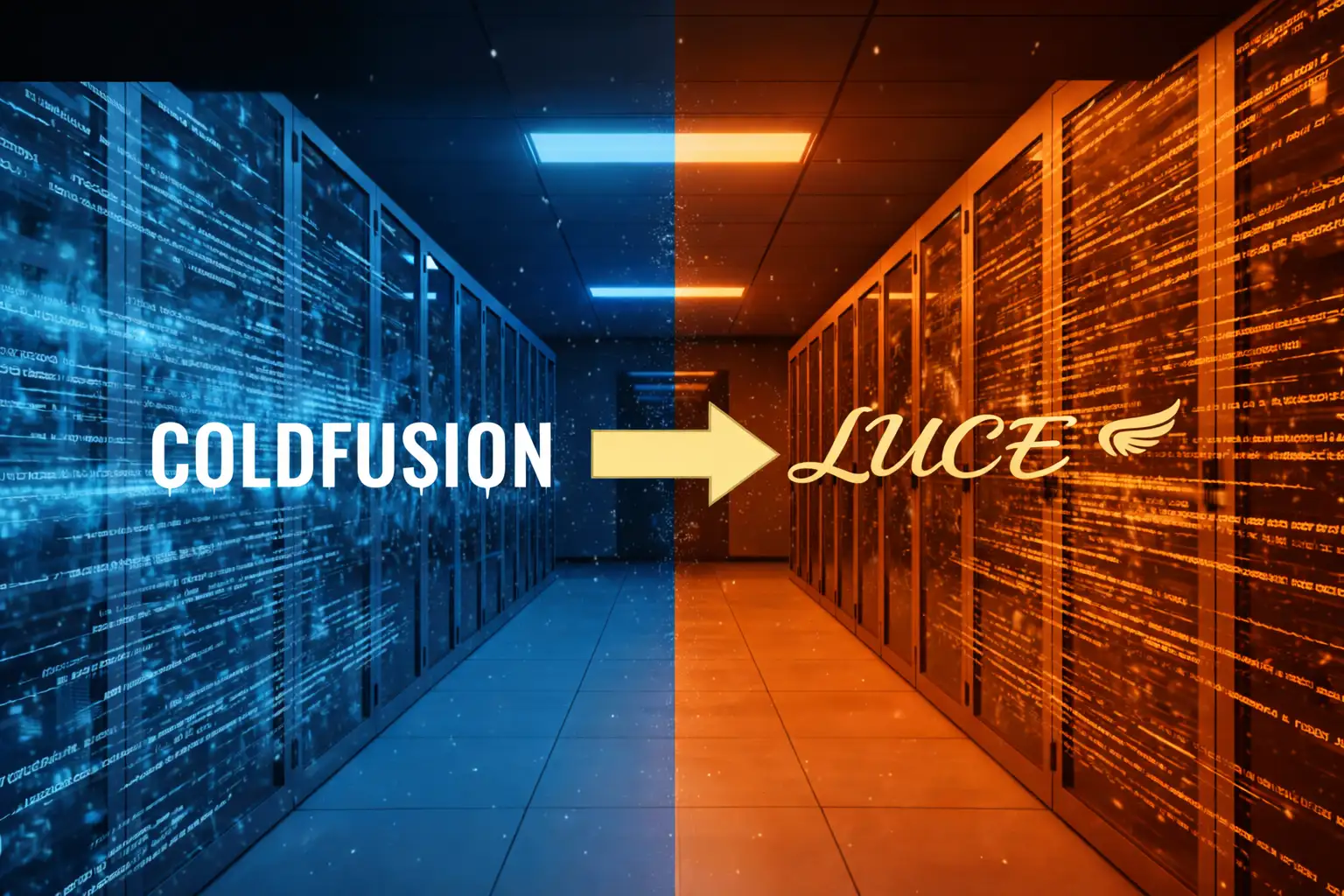 ColdFusion to Lucee Migration ....
ColdFusion to Lucee Migration ....

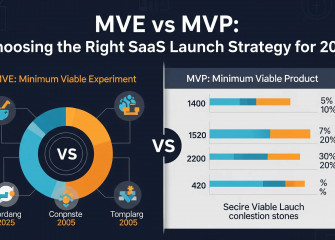

Your Trusted Software Development Company